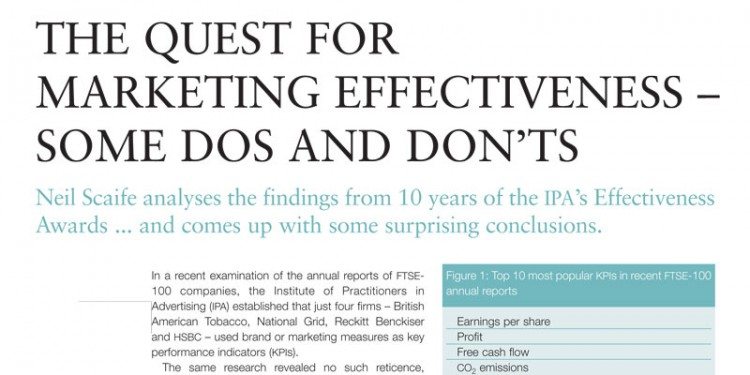Neil Scaife analyses the findings from 10 years of the IPA’s Effectiveness Awards … and comes up with some surprising conclusions.
In a recent examination of the annual reports of FTSE-100 companies, the Institute of Practitioners in Advertising (IPA) established that just four firms – British American Tobacco, National Grid, Reckitt Benckiser and HSBC – used brand or marketing measures as key performance indicators (KPIs).
The same research revealed no such reticence, however, when it came to non-brand related KPIs – whilst 24 companies reported no KPIs whatsoever (fairly astonishing in itself), the 76 that did focused on profit, return on investment, environmental and social responsibility, human capital and, naturally, sales. Of the 388 various KPIs used, only one concerned marketing spend. [The top 10 most popular KPIs are listed in Figure 1.]
This imbalance would seem to stem from: i) a lack of understanding at board level about the link between brand performance and the value of the business; ii) the inability of the marketing industry to make that link empirically; and iii) most worrying of all, given that brands now account for, on average, 12% of a company’s market value, a lack of shareholder demand for such metrics.
Whilst one supposes we should welcome the fact that a financial services organisation made it into the aforementioned ‘exemplary four’, anecdotal evidence from the city analyst community suggests that this issue is particularly acute in the financial services sector … which is cause for more than a little concern for us here at The Forum, given our commitment to enhancing the levels of marketing effectiveness within our member organisations. (It will surprise few readers, I suspect, to learn that a recent McKinsey study1 of CEOs reported a view of the marketing function as ‘undisciplined’, ‘uncommercial’ and ‘not accountable’.)
For the full article download the above PDF.

